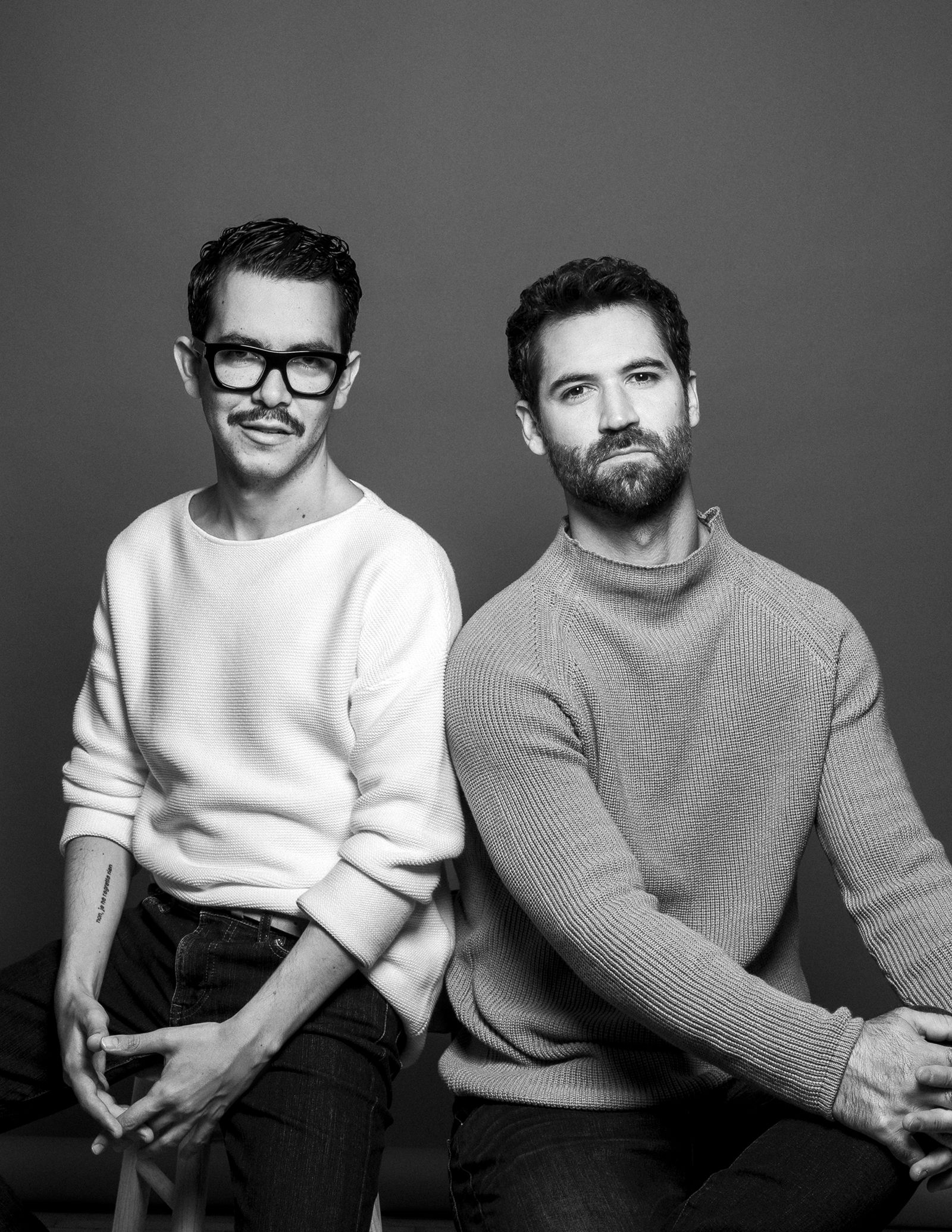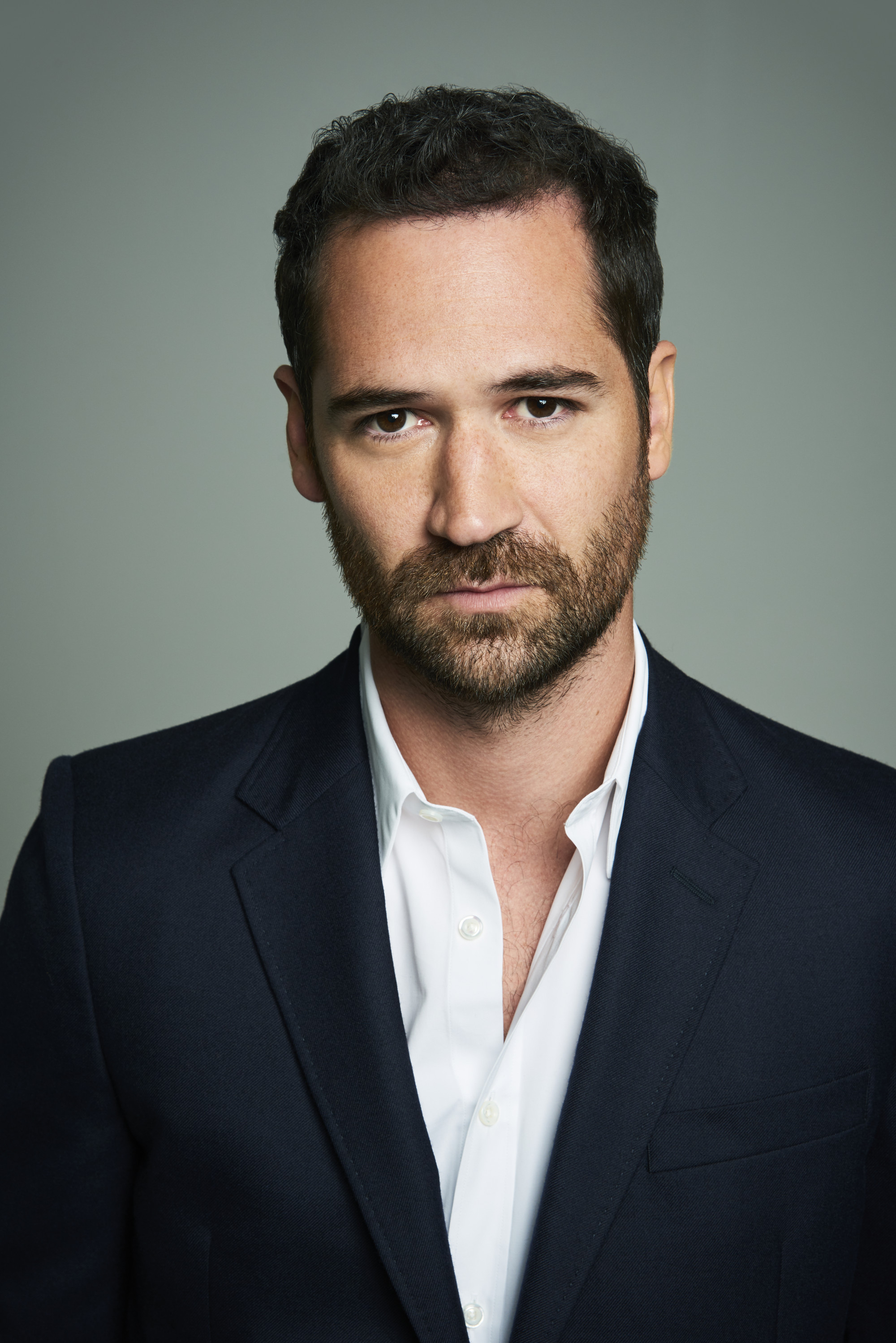Manuel Garcia Rulfo Naked: Exploring Privacy In The Digital Spotlight
In an era where digital footprints are indelible and public curiosity often knows no bounds, the lives of celebrities like Manuel Garcia Rulfo are constantly under a microscope. The internet, a vast ocean of information, allows for unprecedented access to both legitimate news and speculative content. When a search query like "Manuel Garcia Rulfo naked" emerges, it underscores a deeper conversation about privacy, public perception, and the ethical responsibilities of both content creators and consumers in the digital age. This article delves into the complexities surrounding such searches, examining the fine line between public interest and personal boundaries for figures like Manuel Garcia Rulfo, and the broader implications for celebrity privacy in our hyper-connected world.
The fascination with public figures is not new, but the mechanisms through which we satisfy this curiosity have evolved dramatically. From traditional tabloids to social media and search engines, information—and misinformation—can spread globally in an instant. Understanding the context behind such intense public interest, especially concerning personal aspects, requires a nuanced perspective that respects individual rights while acknowledging the unique position of those in the public eye. As we explore the journey and public image of Manuel Garcia Rulfo, we'll also reflect on the pervasive nature of online accessibility and its impact on personal privacy.
Table of Contents
- Manuel Garcia Rulfo: A Rising Star's Journey
- The Digital Age and Celebrity Scrutiny
- Understanding "Naked" in the Public Sphere
- The Ethics of Online Searches and Consumption
- Protecting Public Figures in the Digital Era
- Media Literacy and Responsible Engagement
- The Enduring Allure of Manuel Garcia Rulfo
- Conclusion
Manuel Garcia Rulfo: A Rising Star's Journey
Manuel Garcia Rulfo has steadily carved out a significant presence in Hollywood, captivating audiences with his versatile acting and charismatic screen presence. Born in Guadalajara, Jalisco, Mexico, his journey to international acclaim is a testament to his dedication and talent. From early roles in Mexican cinema to high-profile American productions, Rulfo has demonstrated a remarkable range, embodying diverse characters with authenticity and depth. His performances often resonate with a raw honesty that draws viewers in, making him a compelling figure both on and off screen.
- Alex Roarty
- Brandyandbilly Onlyfans Leak
- Chistes Oscuros
- %E4%B9%B3%E9%A0%AD %E7%89%B9%E5%AF%AB
- Ted Livingston
His breakthrough roles in films like "The Magnificent Seven" (2016), where he starred alongside Denzel Washington and Chris Pratt, and "Murder on the Orient Express" (2017), showcased his ability to hold his own among seasoned actors. More recently, his leading role as Mickey Haller in Netflix's "The Lincoln Lawyer" series has brought him widespread recognition, solidifying his status as a prominent international actor. Rulfo's career trajectory highlights the increasing globalization of the entertainment industry, where talent transcends geographical boundaries.
Biography of Manuel Garcia Rulfo
Manuel Garcia Rulfo's personal and professional journey offers insights into the dedication required to succeed in the competitive world of acting. His background, training, and a series of strategic career choices have all contributed to his current standing. Below is a snapshot of his personal data and biodata, providing a clearer picture of the man behind the roles.
| Category | Details |
|---|---|
| Full Name | Manuel Garcia Rulfo |
| Date of Birth | February 25, 1981 |
| Place of Birth | Guadalajara, Jalisco, Mexico |
| Nationality | Mexican |
| Occupation | Actor |
| Active Years | 2006–Present |
| Notable Works | "The Magnificent Seven," "Murder on the Orient Express," "6 Underground," "The Lincoln Lawyer" (TV series) |
| Education | New York Film Academy |
| Height | Approximately 6 feet 1 inch (1.85 m) |
| Zodiac Sign | Pisces |
This table provides a factual overview of Manuel Garcia Rulfo, grounding our discussion in verified information about his public persona and career.
- Chris Sails Naked
- 2024 Panini Origins Football Checklist
- Bmw Of Princeton
- Gidle Miyeon
- Jordan Powell Nude
The Digital Age and Celebrity Scrutiny
The advent of the digital age has fundamentally reshaped how information is disseminated and consumed. On one hand, it has democratized access to knowledge, making educational resources and cultural content freely available to anyone with an internet connection. Just as "le manuel en accès libre la version gratuite en ligne de votre manuel peut être consultée partout, à tout moment de la journée," allowing students and teachers unparalleled convenience, the same principle of widespread online access applies to information about public figures. This accessibility fosters a sense of closeness between celebrities and their fans, allowing for direct engagement and a more immediate understanding of their work and lives.
However, this unprecedented access comes with significant challenges, particularly concerning privacy. The line between public persona and private life has become increasingly blurred. Every public appearance, social media post, and even casual photograph can be scrutinized, analyzed, and shared endlessly. This constant digital presence means that celebrities are under perpetual observation, leading to an environment where their personal lives are often subjected to intense public curiosity, sometimes veering into invasive territory. The ease with which content can be uploaded and shared globally means that once something is online, it is incredibly difficult, if not impossible, to remove entirely. This digital permanence is a significant concern for individuals, especially those in the public eye, as it can lead to long-term consequences for their reputation and personal well-being.
The Double-Edged Sword of Online Accessibility
The "accès libre" (free access) model, while revolutionary for education and information sharing, presents a unique dilemma for personal privacy. The same digital infrastructure that allows students to "consulter partout, à tout moment de la journée" their educational resources also facilitates the rapid spread of personal images, rumors, and unverified claims about public figures. This creates a challenging environment where the desire for information can sometimes override ethical considerations of privacy.
For celebrities, this means that their image and personal life are constantly at risk of being exploited or misrepresented. The ease of sharing content across platforms, from social media to dedicated fan sites, means that any photograph or video, regardless of its original intent or context, can be widely disseminated. This phenomenon contributes to the prevalence of searches like "Manuel Garcia Rulfo naked," as individuals seek out content that might satisfy their curiosity, often without fully considering the ethical implications or the potential harm to the individual involved. The digital landscape, while offering unparalleled connectivity, also demands a heightened sense of responsibility from its users to discern credible information from speculation and to respect the privacy of others, particularly those whose lives are already under intense public scrutiny.
Understanding "Naked" in the Public Sphere
When a search query like "Manuel Garcia Rulfo naked" surfaces, it can carry multiple interpretations. It might refer to artistic choices made within his professional acting roles, where nudity or implied nudity serves a narrative purpose. Many actors, across all levels of fame, engage in scenes that require varying degrees of exposure, often under strict professional guidelines and with the explicit consent of the actor. These instances are typically part of a character's development or a story's arc and are distinct from unauthorized or private content.
Alternatively, such searches could be driven by mere curiosity, fueled by rumors, or the unfortunate reality of non-consensual image sharing. In the age of deepfakes and manipulated media, it's also crucial to consider the possibility of fabricated content designed to exploit or defame public figures. It is vital for consumers of online content to exercise critical thinking and verify sources, especially when encountering sensitive or unverified material. The ethical responsibility lies not only with those who create or share such content but also with those who seek it out. Understanding the context and potential implications of such searches is paramount to fostering a more respectful and responsible digital environment.
Artistic Expression vs. Personal Privacy
The distinction between artistic expression and personal privacy is crucial when discussing actors and their public image. When Manuel Garcia Rulfo, or any actor, portrays a character that involves nudity, it is typically a deliberate artistic choice made within a professional, controlled environment. These scenes are part of their craft and are intended for specific narrative purposes. They are often carefully choreographed and filmed with the actor's full consent and understanding of the context.
However, this professional context is entirely separate from an individual's right to personal privacy outside of their work. The expectation that an actor's public role grants unlimited access to their private life, or justifies the search for unauthorized personal content, is a dangerous misconception. Public figures, despite their visibility, retain fundamental rights to privacy and dignity. The line between what is shared professionally and what remains private is often blurred by intense public interest, but it is a line that must be respected. The proliferation of images or information without consent, whether real or fabricated, constitutes a violation of privacy and can have severe psychological and professional repercussions for the individual. This distinction is fundamental to maintaining ethical boundaries in the digital consumption of celebrity content.
The Ethics of Online Searches and Consumption
The act of searching for and consuming content related to "Manuel Garcia Rulfo naked" raises significant ethical questions. While the internet offers unparalleled freedom of information, this freedom comes with a responsibility to consider the impact of our digital actions. Every search query, every click, and every share contributes to the digital landscape. When it comes to sensitive personal content, the ethical considerations are amplified.
Firstly, there's the question of consent. Unless content is willingly and explicitly shared by the individual for public consumption (e.g., a role in a film), seeking out or sharing private images without consent is a violation of privacy. This principle is a cornerstone of digital ethics and aligns with broader societal values of respect and autonomy. Secondly, the proliferation of such searches can contribute to a culture of objectification and exploitation, where individuals are reduced to mere objects of curiosity rather than respected professionals and human beings. This can have detrimental effects on the mental health and professional lives of public figures, who are already under immense pressure.
Furthermore, the spread of unverified or fabricated content can cause irreparable damage to a person's reputation. In an age where deepfakes are increasingly sophisticated, distinguishing between genuine and manipulated content is challenging. Therefore, a critical approach to information, an awareness of potential harm, and a commitment to respecting privacy are essential ethical guidelines for anyone navigating the vast and often unregulated world of online content. Our digital interactions should reflect the same standards of respect and integrity we expect in our offline lives.
Protecting Public Figures in the Digital Era
Protecting public figures like Manuel Garcia Rulfo from privacy invasions in the digital era is a complex challenge that requires a multi-faceted approach. While celebrities inherently live under a spotlight, their right to privacy, dignity, and safety must be upheld. This protection involves legal frameworks, technological advancements, and a shift in public attitudes.
Legally, many jurisdictions are strengthening laws against revenge porn, non-consensual image sharing, and deepfake creation. These laws aim to provide recourse for victims and deter perpetrators. However, enforcement across international borders remains a significant hurdle. Technologically, platforms and search engines are developing more sophisticated tools to identify and remove illicit content, although the sheer volume of data makes this a continuous battle. For instance, just as educational platforms strive to provide "le site de vos ressources numériques éducatives" in a secure environment, social media and content platforms have a responsibility to secure personal data and prevent misuse.
Crucially, a change in public behavior is perhaps the most impactful form of protection. This involves promoting media literacy and ethical consumption of content. When the public understands the harm caused by privacy violations and refrains from seeking out or sharing unauthorized personal content, the demand for such material diminishes. Supporting public figures means respecting their boundaries and recognizing that their professional lives do not equate to an open invitation into their private worlds. Advocacy groups and public awareness campaigns also play a vital role in educating the public about the consequences of digital privacy breaches and fostering a culture of respect online. Ultimately, a collective effort is needed to ensure that the digital landscape, while offering immense opportunities, does not become a breeding ground for exploitation and disrespect.
Media Literacy and Responsible Engagement
In a world where information, both factual and fabricated, is instantly accessible, media literacy has become an indispensable skill. For topics as sensitive as "Manuel Garcia Rulfo naked," understanding how to critically evaluate online content is paramount. Media literacy involves the ability to access, analyze, evaluate, and create media in a variety of forms. It empowers individuals to be discerning consumers of information, rather than passive recipients.
Key aspects of media literacy include:
- Source Verification: Always question the origin of content. Is it from a reputable news organization, an official social media account, or an anonymous forum? Unverified sources are often unreliable.
- Contextual Understanding: Consider the context in which an image or piece of information is presented. Is it part of a film role, a staged photoshoot, or something taken without consent?
- Identifying Manipulation: Be aware of the existence of deepfakes and manipulated images. If something looks too perfect, or too shocking, it might be digitally altered.
- Understanding Intent: Reflect on why certain content is being shared. Is it to inform, entertain, or potentially to harm or exploit?
- Ethical Implications: Before sharing or engaging with content, consider the potential impact on the individual involved. Does it violate their privacy or dignity?
By actively practicing media literacy, individuals can contribute to a more responsible and ethical online environment. This means choosing not to search for or disseminate unauthorized private content, and instead focusing on supporting public figures through their legitimate artistic and professional endeavors. Responsible engagement ensures that the digital space remains a place for connection and information, rather than a platform for exploitation.
The Enduring Allure of Manuel Garcia Rulfo
Despite the pervasive nature of online scrutiny, Manuel Garcia Rulfo's enduring appeal lies in his undeniable talent and commitment to his craft. His performances, whether in gritty dramas or action-packed thrillers, consistently demonstrate a depth and authenticity that transcends fleeting public curiosities. Audiences are drawn to his ability to inhabit complex characters, bringing nuance and humanity to each role. It is this artistic integrity that truly defines his presence in the entertainment industry, far more than any speculative or invasive online searches.
His success, particularly with "The Lincoln Lawyer," highlights a growing appreciation for actors who deliver compelling narratives and strong performances. This focus on artistic merit is crucial in redirecting public attention from invasive personal inquiries back to the legitimate work of actors. The true value of a public figure like Manuel Garcia Rulfo lies in his contributions to storytelling and his ability to entertain and inspire through his acting. As his career continues to evolve, it is his professional achievements and artistic journey that will leave a lasting legacy, overshadowing any fleeting online trends related to his personal life. Supporting artists means celebrating their work and respecting their boundaries, allowing them to continue enriching the cultural landscape with their talent.
Conclusion
The discussion surrounding "Manuel Garcia Rulfo naked" serves as a poignant reminder of the intricate relationship between celebrity, privacy, and the digital age. While the internet offers incredible avenues for accessing information, from educational resources to entertainment news, it also presents significant challenges regarding personal boundaries and ethical conduct. We've explored Manuel Garcia Rulfo's impressive career, highlighting his talent and contributions to cinema and television, which are the true essence of his public persona. Simultaneously, we've delved into the ethical implications of online searches for sensitive content, emphasizing the critical need for media literacy and responsible digital citizenship.
Ultimately, the power to shape the digital environment rests with each of us. By prioritizing respect, consent, and critical thinking, we can contribute to a more secure and ethical online space for everyone, including public figures like Manuel Garcia Rulfo. Let us focus on celebrating their artistic achievements and respecting their fundamental right to privacy, ensuring that their legacy is defined by their talent and integrity, not by invasive speculation. What are your thoughts on celebrity privacy in the digital age? Share your perspective in the comments below, and consider exploring other articles on our site that delve into media ethics and responsible online engagement.

Pictures of Manuel Garcia-Rulfo

Manuel Garcia-Rulfo 2025: Girlfriend, net worth, tattoos, smoking

MANUEL GARCIA-RULFO Feet - AZNudeFeet Men